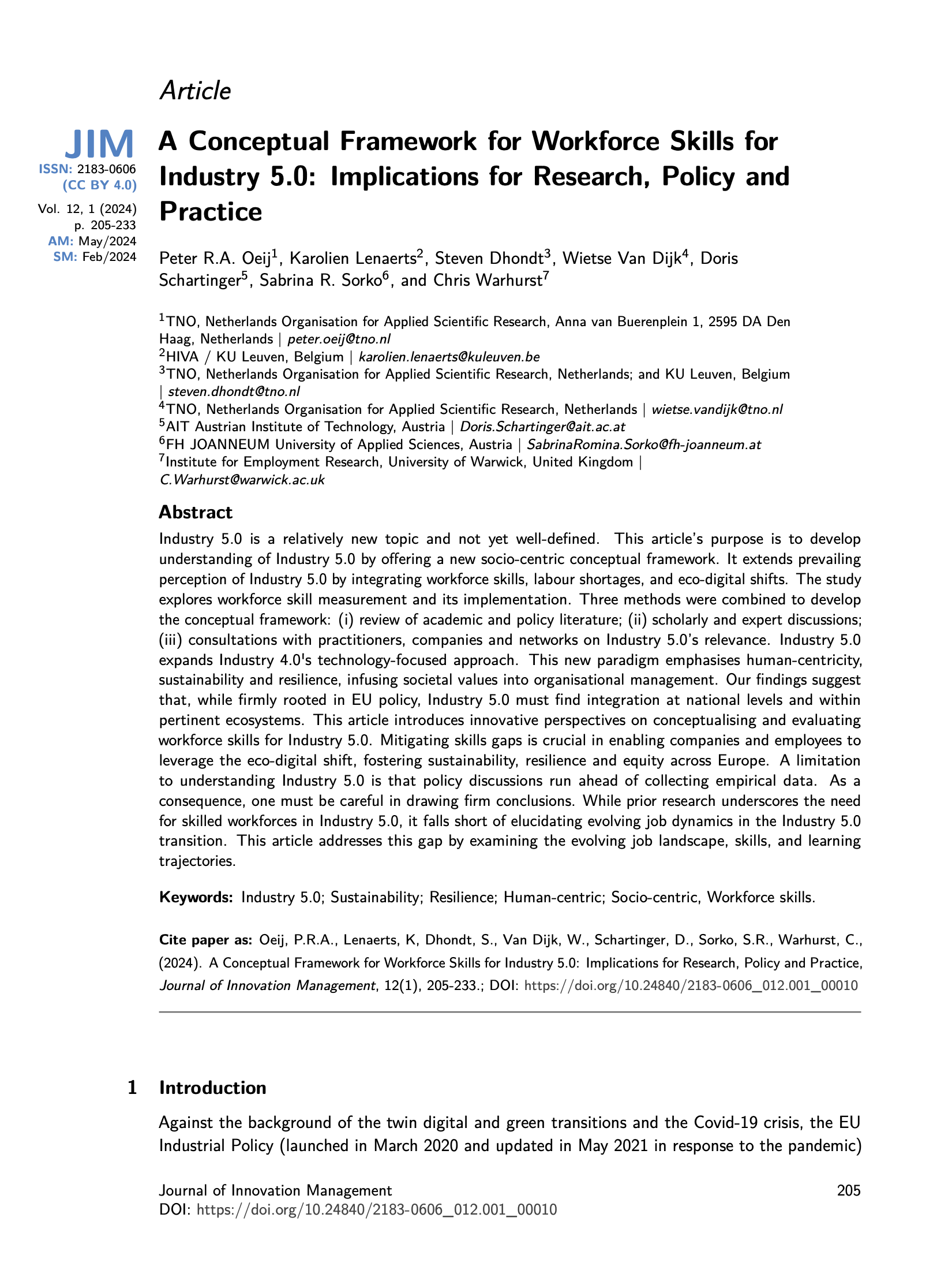A Conceptual Framework for Workforce Skills for Industry 5.0: Implications for Research, Policy and Practice
Main Article Content
Abstract
Industry 5.0 is a relatively new topic and not yet well-defined. This article’s purpose is to develop understanding of Industry 5.0 by offering a new socio-centric conceptual framework. It extends prevailing perception of Industry 5.0 by integrating workforce skills, labour shortages, and eco-digital shifts. The study explores workforce skill measurement and its implementation. Three methods were combined to develop the conceptual framework: (i) review of academic and policy literature; (ii) scholarly and expert discussions; (iii) consultations with practitioners, companies and networks on Industry 5.0’s relevance. Industry 5.0 expands Industry 4.0's technology-focused approach. This new paradigm emphasises human-centricity, sustainability and resilience, infusing societal values into organisational management. Our findings suggest that, while firmly rooted in EU policy, Industry 5.0 must find integration at national levels and within pertinent ecosystems. This article introduces innovative perspectives on conceptualising and evaluating workforce skills for Industry 5.0. Mitigating skills gaps is crucial in enabling companies and employees to leverage the eco-digital shift, fostering sustainability, resilience and equity across Europe. A limitation to understanding Industry 5.0 is that policy discussions run ahead of collecting empirical data. As a consequence, one must be careful in drawing firm conclusions. While prior research underscores the need for skilled workforces in Industry 5.0, it falls short of elucidating evolving job dynamics in the Industry 5.0 transition. This article addresses this gap by examining the evolving job landscape, skills, and learning trajectories.
Article Details
Authors who publish with this journal agree to the following terms:
- Authors retain copyright and grant the journal right of first publication with the work simultaneously licensed under a Creative Commons Attribution License that allows others to share the work with an acknowledgement of the work's authorship and initial publication in this journal.
- Authors are able to enter into separate, additional contractual arrangements for the non-exclusive distribution of the journal's published version of the work (e.g., post it to an institutional repository or publish it in a book), with an acknowledgement of its initial publication in this journal.
- Authors are permitted and encouraged to post their work online (e.g., in institutional repositories or on their website) prior to and during the submission process, as it can lead to productive exchanges, as well as earlier and greater citation of published work (See The Effect of Open Access).

